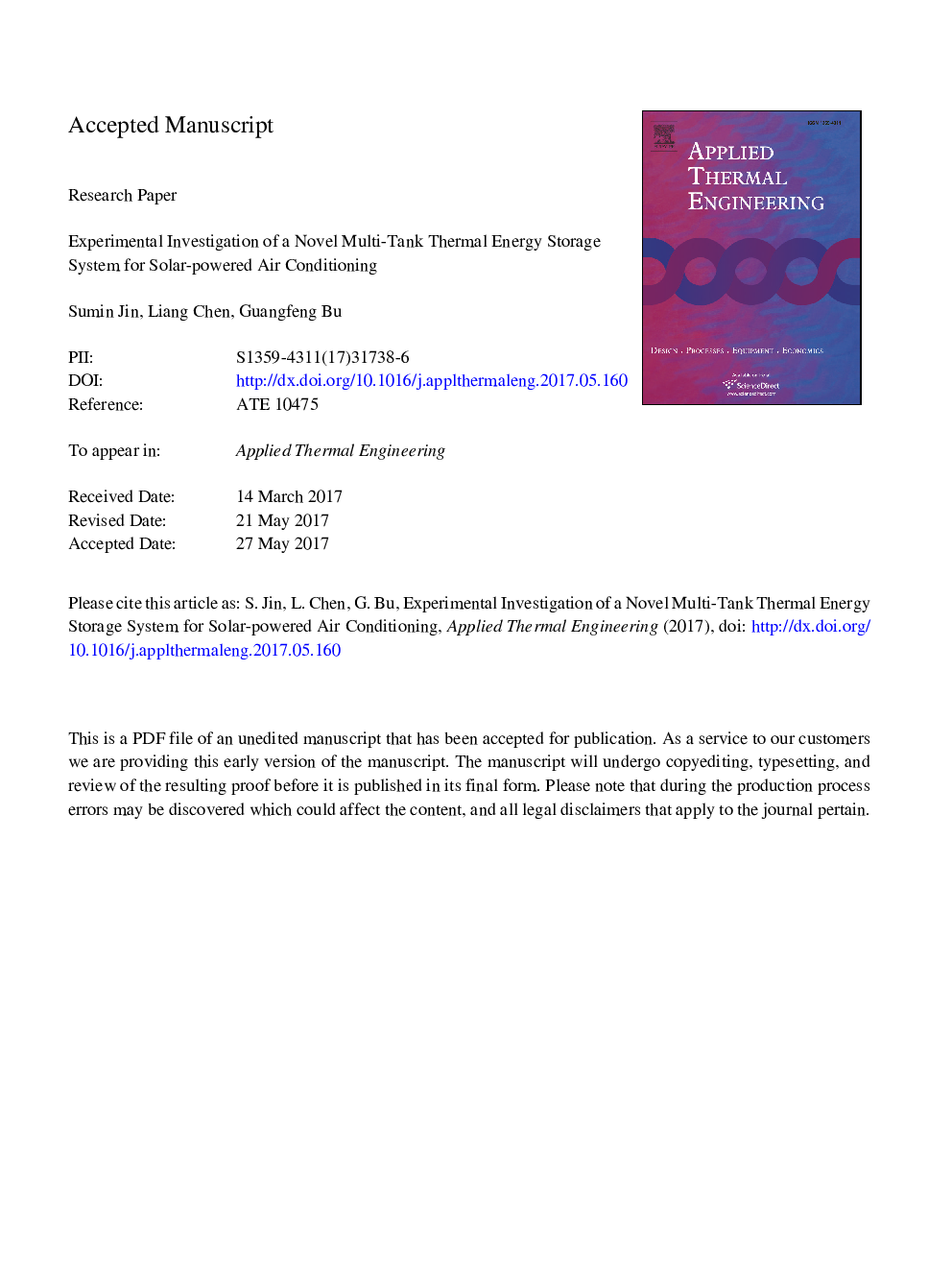| Article ID | Journal | Published Year | Pages | File Type |
|---|---|---|---|---|
| 4990572 | Applied Thermal Engineering | 2017 | 47 Pages |
Abstract
The volume of hot storage tank in sensible thermal energy storage (STES), integrated with solar-powered air conditioning to mitigate the misalignment between supply and demand, is too big which results in great thermal inertia. In this paper, a novel multi-tank thermal energy storage (TES) system for solar-power air conditioning, with the advantages of quick temperature rising and outstanding ability to fit variable weather, was proposed to mitigate the contradictions between demand and supply. In order to investigate effect of the number of tanks (NT) on system response time (SRT), total energy grade of water in tanks and temperature variations in charging and discharging periods, a series of experiments of TESs with different number of tanks (total volume of tanks is constant) were conducted under the same solar radiation conditions. Results show that the energy grade of water in tanks is improved through dividing thermal energy storage system into several tanks with different priorities of charging and discharging, and SRT decreases by 6.95Â h in four-tank TES, compared with one-tank TES. Furthermore, the duration time of ideal heating inlet water temperature (IHIWT) in entire operational period increases slowly with the number of tanks, because NT has opposite effects on duration time of IHIWT in charging and discharging periods. An optimized control strategy that tanks stored heat successively in charging period and released heat simultaneously in discharging period was proposed. It is notable that the duration time of IHIWT in four-tank TES increases 2.59Â h, about 26.67%, after the optimized control strategy is adopted. Therefore, the optimized TES makes the single-effect absorption chiller run at a high COP over a long time without strong variations of COP, compared with other TESs.
Keywords
Related Topics
Physical Sciences and Engineering
Chemical Engineering
Fluid Flow and Transfer Processes
Authors
Liang Chen, Sumin Jin, Guangfeng Bu,
